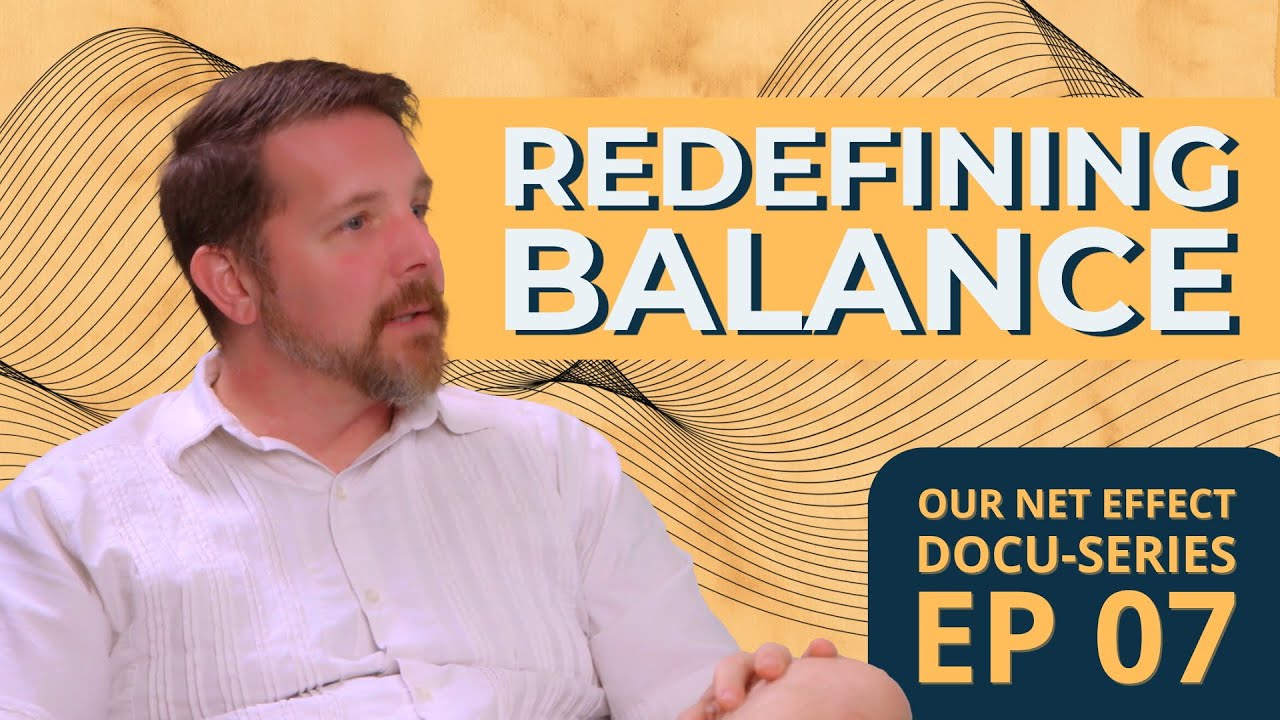Feeling trapped or stuck in life is a common experience many people will grapple with from time to time, or otherwise at particular points around specific life events. I’ve been there; we’ve all been there. It can stem from various factors of your current situation such as personal relationships, career dissatisfaction, financial constraints, or a lack of fulfillment.
This post delves into understanding that feeling of being trapped in life, exploring the impact it has on mental and emotional well-being, and offering potential solutions for finding a way out.
Understanding the Feeling of Being Trapped in Life
Feeling stuck or trapped in life often arises from a sense of stagnation, a lack of progress, or a feeling of being stuck in an undesirable situation. It can manifest as a constant sense of frustration, dissatisfaction, and longing for change. This feeling can be further intensified when individuals compare their lives to others or have unfulfilled dreams and aspirations.
How it Affects Mental and Emotional Well-being
A person’s mental and emotional well-being can be significantly compromised. Individuals may experience anxiety, stress, and depression due to a lack of control and a sense of hopelessness. The constant pressure to break free from this perceived confinement can also cause a loss of motivation and self-confidence. Over time, these negative emotions can have a detrimental effect on overall emotional and mental health condition, affecting relationships, physical health, professional life, and overall quality of life.
Feeling trapped can sometimes be attributed to mental illness or mental health issues, such as depression, which can result in a sense of helplessness.
It is important to recognize these emotions and seek assistance from trusted individuals, such as friends, family, or mental health professionals. Acknowledging the validity of one’s emotions and seeking help can be the initial step towards finding a solution to this feeling of being trapped.
In the next section, we will explore some potential solutions and strategies to combat the feeling of being trapped in life, providing hope and encouragement for those going through this difficult experience.
Identifying the Underlying Causes
When someone feels trapped in life, it’s essential to identify the underlying causes. These causes can vary from person to person, but some common sources include personal relationships, career dissatisfaction, financial constraints, and a lack of fulfillment. By pinpointing the specific areas causing these feelings, individuals can begin to address them directly.
For instance, personal relationships (especially a toxic relationship) can create a sense of entrapment if there is a lack of communication, trust, or compatibility. On the other hand, career dissatisfaction may stem from feeling unappreciated, stuck in a dead-end job, or lacking passion for the work being done. Financial constraints, such as debt or a lack of financial stability, can also contribute to feelings of being trapped.
Exploring external and internal factors contributing to the feeling
Feeling trapped in life can be influenced by both external and internal factors. External factors refer to circumstances or situations beyond one’s control, while internal factors pertain to personal beliefs, attitudes, and mindset.
External factors that contribute to feeling trapped may include societal expectations, cultural norms, or limited opportunities in a particular environment. For example, someone living in a small town with minimal job prospects may feel trapped due to the lack of options available to them.
Internal factors, on the other hand, revolve around one’s thoughts, perceptions, and beliefs. Negative self-talk, limiting beliefs, fear of change, or a lack of self-confidence can all create a sense of being trapped. It is crucial to explore these internal factors and challenge negative patterns of thinking to break free from the feeling of entrapment.
By identifying both the external and internal factors contributing to feeling trapped, individuals can develop strategies and take actions to overcome these obstacles. It might involve seeking support, making changes in relationships or careers, or working on personal growth and mindset. In the next section, we will dive deeper into these strategies, offering guidance and hope for those seeking to escape the feeling of being trapped in life.
Examining & Evaluating Limiting Beliefs
It is essential to evaluate and examine the underlying limiting beliefs that may be contributing to these feelings. Negative beliefs can have a significant impact on one’s mindset and perception of their abilities, often hindering personal growth and progress.
Common limiting beliefs that contribute to feeling trapped may include thoughts such as “I’m not good enough,” “I don’t deserve happiness,” or “I’ll never succeed.” These beliefs can stem from past experiences, societal pressure, or comparisons to others.
Taking the time to identify and understand these negative beliefs is an essential step in evaluating and addressing them. It may involve reflecting on past experiences or seeking guidance from a trusted friend or therapist. By examining these beliefs, individuals can gain insight into the root causes of feeling trapped and begin the process of challenging and replacing them.
Challenging and Replacing Limiting Thoughts
Once identified, it’s crucial to challenge and replace limiting thoughts with more empowering and positive beliefs. This process requires self-reflection, self-compassion, and a willingness to embrace change.
Challenging limiting thoughts involves questioning their validity. It’s essential to ask oneself if there is evidence to support these beliefs or if they are simply assumptions or negative self-talk. By challenging the accuracy of these thoughts, individuals can begin to weaken their hold and open the door to new possibilities.
Replacing limiting thoughts with more empowering ones is a gradual process that requires conscious effort and practice. Affirmations, positive self-talk, and visualization techniques can be powerful tools in reshaping one’s mindset. By intentionally choosing and focusing on positive beliefs, individuals can shift their perspective and break free from the feeling of being trapped.
It is important to remember that evaluating and challenging limiting beliefs is an ongoing journey. It takes time, patience, and self-compassion. Surrounding oneself with a supportive network and seeking professional help if necessary can provide additional guidance and encouragement along the way.
In the following sections, we will delve deeper into practical strategies to overcome limiting beliefs and provide tools and resources to help individuals navigate their way toward a more fulfilling and liberated life.
Taking Inventory and Setting Goals
Taking the time to reflect on personal values, strengths, and passions is important for gaining clarity and direction. By evaluating and understanding these aspects, individuals can begin to develop a sense of purpose and create a path towards a more fulfilling life.
Reflecting on personal values, strengths, and passions
One of the first steps in taking inventory is to reflect on personal values, strengths, and passions. This involves identifying what truly matters to you, what you excel at, and what brings you joy and fulfillment. For some, this may involve journaling or self-reflection exercises, while others may benefit from seeking guidance from a coach or mentor. By gaining a better understanding of your values, strengths, and passions, you can align your actions and decisions with what truly matters to you, leading to a greater sense of fulfillment and purpose.
Setting achievable goals for personal growth
Once you have reflected on your personal values, strengths, and passions, the next step is to set achievable goals for personal growth. These goals should be specific, measurable, attainable, relevant, and time-bound (SMART goals). Start by breaking down larger goals into smaller, manageable steps that you can work towards each day. This will help you stay motivated and make progress towards your desired outcome. Additionally, setting goals that align with your values and passions will provide a sense of purpose and drive.
It’s important to remember that personal growth is a journey, and it’s okay to reassess and adjust your goals along the way. Be kind to yourself and celebrate small victories as you work towards your larger aspirations. Surrounding yourself with a supportive community or seeking guidance from a professional can also be incredibly beneficial in providing accountability and encouragement.
By taking inventory of your personal values, strengths, and passions, and setting achievable goals for personal growth, you can begin to break free from the feeling of being trapped and work towards a more fulfilling and liberated life. Remember, this process takes time and patience, so be gentle with yourself as you navigate your way towards personal growth and self-discovery.
Seeking Support: The importance of seeking help from trusted individuals or professionals
It’s important to remember that you don’t have to face these struggles or adverse circumstances alone. Seeking support from trusted individuals or professionals can make a significant difference in finding a way forward.
Positive people that surround you such as trusted close friends, family members, or mentors, can provide a listening ear, offer valuable advice, and lend emotional support. Talking about your feelings and concerns with someone who genuinely cares about your well-being can provide a fresh perspective, honest feedback and help you navigate through your challenges. They can offer guidance, brainstorm ideas, and hold you accountable as you work towards finding a path that aligns with your values and goals.
In addition to seeking support from loved ones, it may also be beneficial to consider professional help. Therapists, counselors, life coaches, or career advisors specialize in providing guidance and support to individuals facing various challenges. They can assist in exploring your feelings of being trapped, helping you uncover underlying causes, and developing strategies to move forward. Professionals have the expertise to ask the right questions, challenge limiting beliefs, deliver professional advice, and facilitate personal growth.
Finding guidance and support networks
Apart from seeking support from individuals, finding guidance and support networks can be another valuable resource. This can include joining support groups or attending workshops or seminars focused on personal development and growth. Engaging with like-minded individuals who have faced similar situations can provide a sense of camaraderie and understanding, allowing you to learn from their experiences and gain insights into overcoming feelings of being trapped.
Online communities or forums can also be an effective way to connect with others who can offer support and encouragement. These platforms can provide a safe space for sharing struggles, receiving expert advice, and connecting with individuals who can relate to your experiences.
keep in mind that seeking support is not a sign of weakness but a courageous step towards finding liberation and fulfillment in life. Whether it’s from trusted individuals or professionals, reaching out for help can provide the guidance and encouragement needed to break free from feeling trapped and discover a path towards personal growth and self-discovery.
Exploring Alternative Perspectives
It may appear that there are limited options or opportunities for growth and change. However, it is essential to remember that there are always alternative perspectives that can open up new possibilities. NET, or Neuro Emotional Technique, can help.
NET is a holistic approach that aims to address the connection between emotions, the mind, and the body. is by far the most scientifically proven technique for changing the brain and subconscious patterning, as well as the farthest-reaching process in its scope of transforming the body and mind. Through this technique, practitioners identify and work on resolving emotional imbalances that may be causing physical manifestations of distress.
In terms of nutritional blockages, research suggests that deficiencies in certain nutrients, such as omega-3 fatty acids, B vitamins, and magnesium, can contribute to mental health issues and a feeling of being stuck. Biochemical blockages, on the other hand, can arise from imbalances in neurotransmitters and hormones, affecting mood and cognitive function. Lastly, structural blockages refer to physical tension or misalignments in the body, which can disrupt the flow of energy and contribute to a sense of being trapped. By addressing these interconnected factors, NET aims to help individuals overcome their stuck mindset and achieve a greater sense of emotional well-being.
When faced with a situation where you feel trapped, start by broadening your perspective. Look beyond the immediate circumstances and try to see the bigger picture. Sometimes, what may seem like a dead-end could actually be an opportunity for growth and transformation. By shifting your focus, you can begin to see new paths that you may not have considered before.
Consider seeking out different viewpoints from trusted individuals or professionals who can offer fresh insights. Talk to people who have faced similar challenges and ask for their perspectives. They may have overcome similar obstacles and can offer guidance on how to break free from feeling trapped. Sometimes, even a simple conversation can provide a new perspective and help you see things in a different light.
Understanding the power of reframing situations
Another powerful technique to explore when feeling trapped is reframing. Reframing means changing the way you perceive a situation to create a more positive and empowering viewpoint.
Instead of seeing your circumstances as limitations, try to identify the opportunities hidden within them. Look for the lessons and personal growth that can come from the challenges you are facing. By reframing your perspective, you can transform feelings of being trapped into a mindset of resilience and possibility.
It is also helpful to practice gratitude and focus on the things you have instead of what you lack. By shifting your attention to the positive aspects of your life, you can change your mindset and open yourself up to new opportunities.
By exploring alternative perspectives and reframing your mindset, you can begin to uncover new possibilities and pathways to personal growth. Embrace the courage to seek support and approach your challenges with an open mind. There is always a way forward, even when it may seem like all doors are closed.
Creating an Action Plan
Experiencing a sense of being stuck in life can present significant difficulties, but it is crucial to keep in mind that opportunities for growth and transformation are always available. The key to breaking free from this feeling is to design an action plan that will help you navigate towards a more fulfilling and purpose-driven life.
Designing a plan to break free from the feeling of being trapped
- Identify the source: Take a step back and assess what is making you feel trapped. Is it your job, your relationships, or a combination of different factors? Understanding the root cause will help you devise an effective action plan.
- Set goals: Determine what you want to change or achieve in your life. Set realistic and attainable goals that align with your values and aspirations. Breaking them down into smaller, manageable steps will make them more achievable and less overwhelming.
- Seek support: Reach out to trusted friends, family members, or professionals who can offer guidance and support. Consider talking to a therapist or life coach who can provide valuable insights and help you gain a fresh perspective.
- Explore new opportunities: Broaden your horizons and explore new possibilities. Take up a hobby or enroll in a course that interests you. This will not only help you discover new talents and passions but also provide a sense of accomplishment and fulfillment.
Taking small steps towards change and progress
- Create a routine: Establish a daily routine that includes activities aligned with your goals and interests. This will help create a sense of structure and purpose in your life.
- Practice self-care: Make self-care a priority by incorporating activities that promote physical, mental, and emotional well-being. This could include exercise, meditation, journaling, or spending time in nature.
- Embrace discomfort: Stepping out of your comfort zone is essential for personal growth. Take calculated risks and embrace new challenges that will push you beyond your limits.
- Celebrate small victories: Acknowledge and celebrate your progress along the way. Every small step you take towards breaking free from feeling trapped is a reason for celebration.
Remember, successfully overcoming the feeling of being trapped requires commitment and perseverance. By designing an action plan and taking small, consistent steps towards change and progress, you can create a life that is more fulfilling and meaningful.
Building Resilience and Self-Compassion
Developing resilience is key to navigating through challenging times and finding the strength to break free from feelings of being stuck.
Resilience is the ability to bounce back from setbacks and adapt to change. Here are some strategies to help you develop resilience:
- Practice positive thinking: Cultivate an optimistic mindset and focus on finding solutions rather than dwelling on problems. Train your mind to see opportunities even in difficult situations.
- Build a support network: Surround yourself with positive and supportive individuals who can provide encouragement and guidance. Reach out to friends, family, or support groups who understand and can offer empathy.
- Take care of your well-being: Prioritize self-care activities that nourish your mind, body, and soul. Engage in regular exercise, get enough sleep, and eat a balanced diet to keep your energy levels high and maintain a positive outlook.
- Learn from failures: Embrace failure as a learning opportunity. Instead of dwelling on past mistakes, reflect on what went wrong and how you can grow from it. Use setbacks as stepping stones towards personal growth.
Practicing self-compassion during the journey
As you embark on your journey to break free from feeling trapped, it’s important to practice self-compassion along the way. Self-compassion involves treating yourself with kindness, understanding, and acceptance, especially during challenging times. Here’s how you can cultivate self-compassion:
- Be kind to yourself: Replace self-criticism with self-encouragement. Treat yourself as you would treat a beloved friend going through a difficult time.
- Practice mindfulness: Stay present in the moment and observe your thoughts and emotions without judgment. Mindfulness can help you develop self-awareness and respond to challenges with greater clarity.
- Set realistic expectations: Avoid perfectionism and set achievable goals for yourself. Recognize that progress takes time and small steps forward are just as valuable as big leaps.
- Practice self-care: Take regular breaks and engage in activities that bring you joy and relaxation. Whether it’s reading a book, taking a walk in nature, or indulging in a hobby, prioritize activities that replenish your energy and uplift your spirit.
Building resilience and practicing self-compassion are gradual processes. Be patient with yourself and celebrate each small victory along the way. By cultivating resilience and treating yourself with kindness, you can break free from feeling trapped and create a life that is filled with resilience, strength, and self-compassion.
Embracing Change and New Opportunities
Feeling trapped in life can be an overwhelming experience, but it’s important to remember that change is inevitable, and with the right mindset, it can bring new opportunities for personal growth and fulfillment. By embracing a mindset of growth and adaptability, you can break free from the feeling of being trapped and open yourself up to a world of possibilities.
One key aspect of embracing change is to let go of the fear of the unknown. It’s natural to feel apprehensive about stepping outside of your comfort zone, but by recognizing that growth occurs outside of familiarity, you can start to embrace new experiences and challenges. Instead of viewing change as a threat, see it as an opportunity for self-discovery and personal expansion.
Another important mindset shift is to adopt a solution-oriented approach. Rather than dwelling on the challenges and obstacles that make you feel trapped, focus on finding creative solutions and strategies to overcome them. This can involve seeking guidance from mentors or experts in your field, or exploring new skills and knowledge that can enhance your abilities and make you more adaptable in the face of change.
Discovering new opportunities for personal fulfillment
When you feel trapped in life, it’s easy to lose sight of your passions and dreams. However, by embracing change and new opportunities, you can rediscover what truly fulfills you on a personal and professional level.
Take the time to reflect on what brings you joy and a sense of purpose. Explore different hobbies, interests, or career paths that align with your values and aspirations. Push yourself to try new things, even if they seem outside of your comfort zone. This can lead to the discovery of hidden talents and passions that you may not have otherwise uncovered.
Additionally, embrace the power of networking and connecting with others who share your interests and goals. Attend events, join communities, and engage in conversations that can expose you to new ideas and opportunities. Building a strong support network of like-minded individuals can provide you with valuable insights, advice, and potential collaborations that can propel you forward on your journey to personal fulfillment.
By adopting a growth mindset and exploring new possibilities, you can break free from the feeling of being trapped and create a life filled with excitement, fulfillment, and personal growth.
Complimentary One-On-One Consultation
No one deserves to live a life without wellness. My goal is to provide holistic care and help people achieve whole-body healing with a care plan that includes natural treatments, alternative medicine, and alternative therapies. You deserve compassion, holistic health & wellness, and freedom. You deserve to have an absence of illness and harmful health effects that lessen your quality of life.
If you are struggling with major depression and not receiving the help you deserve, I encourage you to reach out for a free one-on-one consultation. I will assist you in achieving your health, emotional and spiritual goals through an effective treatment plan that works for you.
I have a global client base and have the ability to create an online program tailored just to you. I welcome you to visit my Westwood office or to contact me by phone, FaceTime, or Skype.
Call me at (310) 277-0241 or contact me here for a free 15-minute phone or video consultation.








